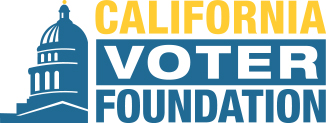Excerpts:
President Donald Trump last week again brought into question the integrity of the upcoming election by suggesting, without evidence, that voters could engage in fraud at polling places.
“Go into the polls and watch very carefully,” Trump said at the first presidential debate against Democratic nominee Joe Biden. Since the debate, Trump and his campaign have continued calls for poll watchers, calling on an “Army for Trump.”
Although every registered California voter will receive a mail-in ballot this week, most counties will still offer physical polling locations for those who want to cast a ballot in person. For those who want to, state law allows the public to observe many aspects of the election process — from preparation of voting equipment to the canvass of the vote after Election Day.
Some worry that the president’s calls to watch the polls could cause conflict at voting centers or discourage voters from casting ballots. But while members of the public can observe the election process in California, election law prohibits them from intimidating voters or interfere with voting. If they do, they could face prison time.
Sam Mahood, a spokesman for the California Secretary of State, said the office will deploy poll observers to monitor voting as it does every year. Any person who interferes with an election, attempts to prevent voters from casting their ballots or attempts to prevent votes from being lawfully counted, could receive prison time up to three years, according to state law.
- - - - - - -
“We have a robust training program that we put every one of our poll observers through. It’s a more sober-minded exercise in democracy versus a partisan effort to get a candidate elected,” he said. “It’s not a partisan witch hunt, where we’re challenging ballots or trying to interfere. We’re just observing to make sure that everything goes according to plan.”
State guidelines limit the actions of observers and give county election officials discretion in handling them, such as restricting the number of observers permitted in a room and requiring them to be quiet.
In general, observers can’t interfere with the election process. They can take notes, watch, and ask questions of poll workers and supervisors, but rules restrict how they interact with voters. The Secretary of State’s general rules for observers bars poll watchers from directly challenging a voter. Only a member of a precinct board may do so.
In addition to prohibitions on electioneering, observers also can’t wear the uniform of a peace officer, a private guard, or security personnel. This year, the state has asked election observers to follow COVID-19 safety guidelines, including wearing face coverings and maintaining a physical distance of six feet. Counties will likely configure physical polling locations differently this year to adjust to the pandemic. Social distancing could limit how many observers are allowed in one space and for how long.
In Sacramento County, all observation and monitoring activities that take place inside the Voter Registration and Elections office must be arranged by appointments — no walk-ins allowed. Election observers will receive badges that must be worn at all times. At voting centers, a limited number of people will be allowed in the voting area at one time, and observers will be required to identify themselves upon entry to the voting area.
California election officials also have the right to restrict the items observers may bring with them into the polling place or counting site, such as cell phones and large backpacks. Observers can’t handle any voting materials or equipment without the expression permission of the elections official, move or rearrange tables, chairs or booths, touch election personnel, eat or drink in a polling place, or directly challenge voters, among other things.
Kim Alexander, president of the non-profit California Voter Foundation, said the president’s call for poll watchers could cause confusion and more challenges for election officials, who already face the pressure of a contentious and unusual election year.
“I know a number of counties have already adjusted their training to make sure that the election staff are prepared to defuse situations that may arise,” Alexander said, adding that there is a “careful line to walk between making sure elections are transparent and also making sure people aren’t interfering.”
“It’s just another wild card in an already wild election,” she said of the president’s call for poll watchers.
Ultimately, Alexander said, voters should not let anything stop them from voting.
“There’s been a lot of bad news and worrisome developments, and a lot of these developments are designed to scare and intimidate voters,” she said. “Don’t let that happen.” (Full Story)

